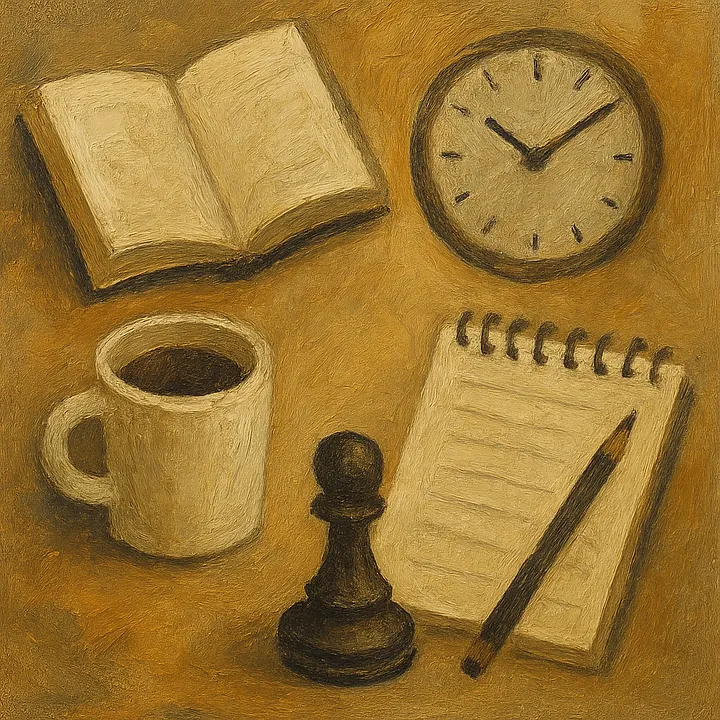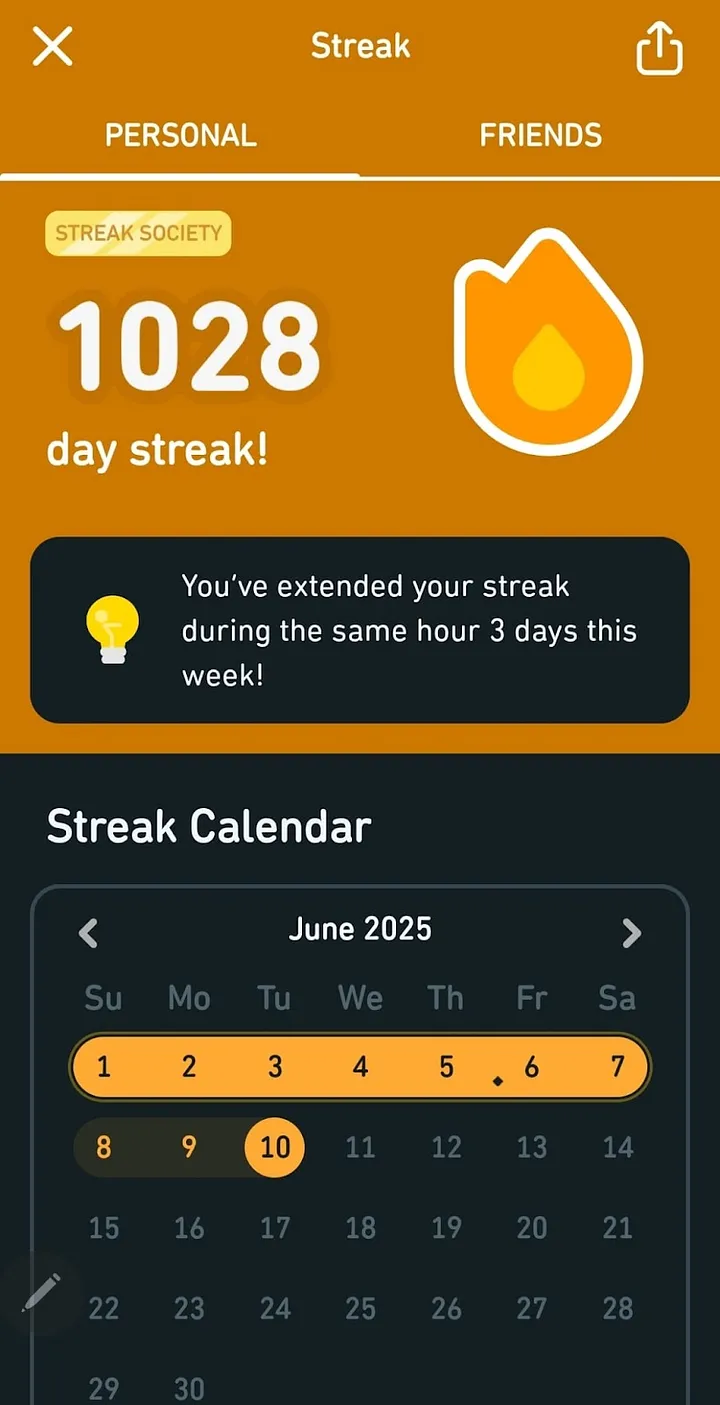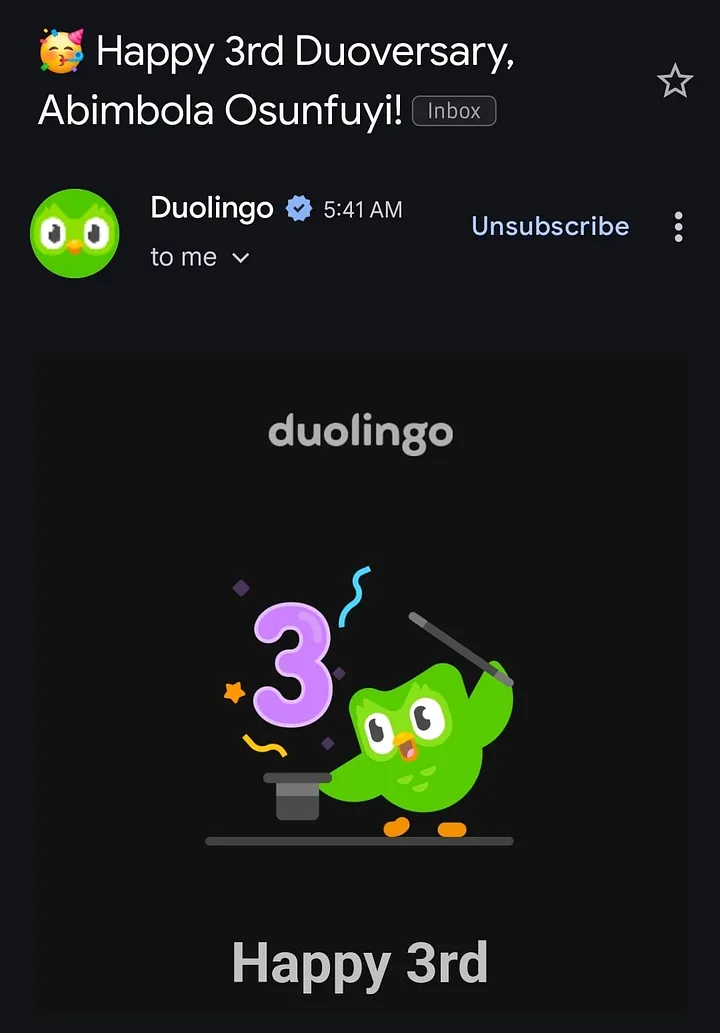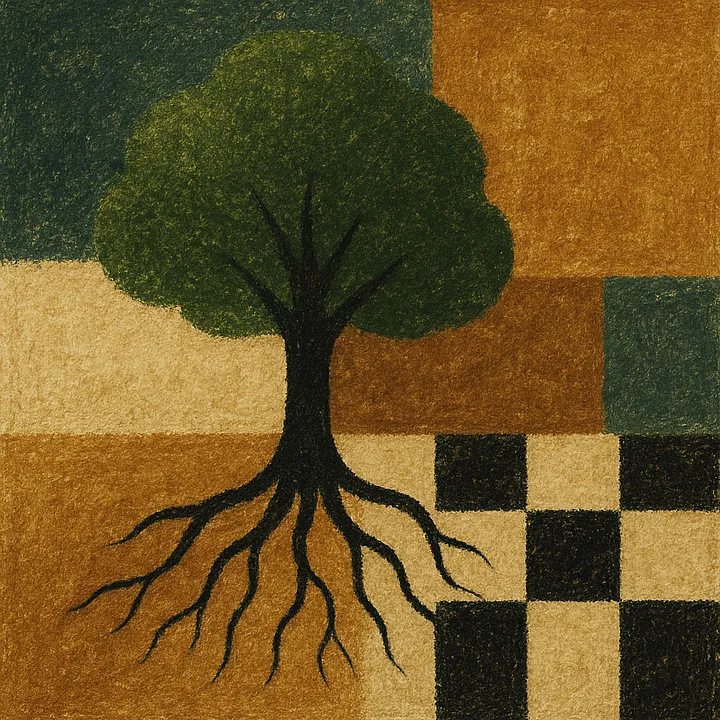Find what you love and let it kill you — Charles Bukowski
Seriously, Bukowski? That sounds reckless. Why so intense?
But the older I get, the more I see more meaning to this quote. It’s not a call to ruin, but a call to devotion, giving all of yourself till there’s nothing left.
Bukowski wasn’t talking about dying in the literal sense. He was talking about being consumed by the pursuits of our passions, our gifts, and the core uniqueness of our existence.
Whew!
It takes much to immerse yourself completely into something, much so that it shapes you, challenges you, and refines you. This is the kind of obsession Bukowski and even Kafka talk about. The world as we know it today is all so fast-paced and tilting towards the basal instincts of pleasure only. We scroll almost endlessly and overload our minds with 30-second clips, read unnecessary opinions of others and endless debates and meme contests.
Hey, we are all allowed to enjoy what we enjoy!
But really, what roots you?
Are you a fan of the norm? Or does your soul cling to depth? How deep are your roots?
Are your friendships/relationships built on real connections, or are they mere memes, performative with a presence that lingers, but never lasts? Nothing roots.
In the middle of all the noise, I just want to remind you of the quiet truth in Bukowski’s words: let what you love take over. Let it shape you, let it cost you something.
For me, it’s small, quiet choices made repetitively — my route to self-improvement. Not the performative daily updates on statuses and reels without doing the work, but an innate and slow improvement. Waking each day to do something that takes me a step further into my death (In Bukowski’s lingua) without applause, without excitement. Solving that headache-inducing chess puzzle, reading a few pages of a book, and adding one more new word to my Spanish vocabulary. It doesn’t look like much, but to me, it’s everything.
We don’t talk about obsession like that anymore. Now it’s either toxic or trendy. But what if obsession is the antidote? What if caring deeply about your mind, your time, and your focus is the most human thing we have left? Dear Bukowski, I hear and see you now. In a world that rewards speed, I have chosen depth. In a world full of cheap thrills, I keep returning to slow, in-depth work. That kind that doesn’t promise results tomorrow. Just a little more clarity. A little more presence. A little more you.
The word ‘obsession’ has a negative undertone, and understandably so. But permit me to, like Bukowski, have poetic justice in this case. I daresay, Obsession is a good thing. I see it as a key metric to Mastery. Caring deeply about the minute details of your craft, being mindful of your time, your focus, and giving it to one resolute cause.
Dear Bukowski, I get it now.
Competence and the Art of the Mundane

There is no set time for a skill to be attained. Each skill is required uniquely at a certain time and from each person. ― Mitta Xinindlu
Competence is quiet confidence, it doesn’t make excuses, it simply gets the job done.
What do you do if you’re asked to teach chess in a language you barely speak? This is not a hypothetical question, it actually happened.
“Caballo Dónde?” — Knight where?
It was a chilly November morning (or Know-vember, as I like to call it). My first day teaching at an Elementary school in Queens. I was scheduled to teach chess to a third-grade class. I had already taught two other groups that day, and things had gone pretty smoothly.
Well, except for one small hiccup: my accent had made the word “bishop” sound like some kind of mystery piece. A few laughs, but we got through it.
I walked into the classroom excited to teach chess to these amazing kids, but there was one problem: they didn’t understand much English, their strength was in their native language — Spanish.
The energy in this classroom was different, the kids looked at me with keen eyes eager to learn Chess, but English would not work here. Their English acumen was still in the works. Their class teacher, calm and effortlessly bilingual, pulled me aside and said “this is an enrichment program. Do what you have to do”
That line echoed beyond the walls of the classroom, settling somewhere deeper within me.
Chess is more than merely teaching rules and making students learn the dynamism of the chessmen. Through coaching, I have learned that it’s really about connections — real connection with your students. It’s one thing to be a strong Chess master, but it’s another to dismantle the complexities of Chess and bring it into size bits for a child’s comprehension, meeting them in their own world, and making a complex game feel simple and fun.
So I stepped up and switched things up. I took control of the room, raised my hand, and said the words that broke the ice:
“Buenos días, clase. Mi nombre es Coach Ayo, Chess maestro.” Just like that, the gap between us started to close.
I watched their eyes light up, and the smiles began to roll in. I became one with the kids.
Then I added “Cuando yo digo pamparampam, tu dices pam pam!”
They got more excited, and anticipated what I had to teach them. And just like that, my first chess class in Spanish had begun.
I didn’t just feel great, I felt like a knight in shining armor, saving the day with my Spanish flair.
But how did I pull it off?
Some time ago, I made a decision to become a polyglot. To show up daily on Duolingo to learn Spanish. To play with the language like I play chess, with strategy, curiosity and commitment. As ordinary as this sounds, this decision is what made me connect to the Grade three students in that Elementary School in Queens. My quiet, everyday pursuit of learning a foreign language has become a slow act of becoming. In embracing the mundane, I’ve found transformation.
I also find French (not the French defense in Chess) to be just as amazing. They say it’s the language of love. And oh, the Italian (Steady and solid, and almost everyone’s favorite), they say it’s the language of passion, akin to the Spanish, the heartbeat of the soul. Here I am juggling all three languages, a polyglot in the making.

These days, I spend most of my time learning Spanish, and you can tell why. In fact, I just hit my three-year mark on Duolingo. It’s wild how fast time flies. It feels like I just started yesterday, but it’s actually been 1,030 days.
I haven’t been perfect, of course, life gets busy, but on those rare days I miss, Duolingo’s streak freeze always has my back, as long as I don’t miss two in a row.

Spending time on Duolingo may appear mundane, but the practical competence it has birthed in me is next to none. It has wrought in me a keen sense of devotion, not to the streaks, but a preparedness for such instances as in that Grade 3 class. My roots were already planted in Spanish, I could only create a branch for my dear Spanish maestros to sit on and learn the amazing game of Chess.
In the end, it’s all about those tiny, awkward steps that shape us, like fumbling a Spanish phrase or losing a pawn, or scrolling to the end of this article without reading it through (which I hope you didn’t, kidding.) Just keep reading, keep practicing, keep showing up, keep doing the mundane, competence does not arrive all at once, it reveals itself slowly in the quiet rhythm of consistency.
Till next time, dear reader, may your roots grow deep. ❤
